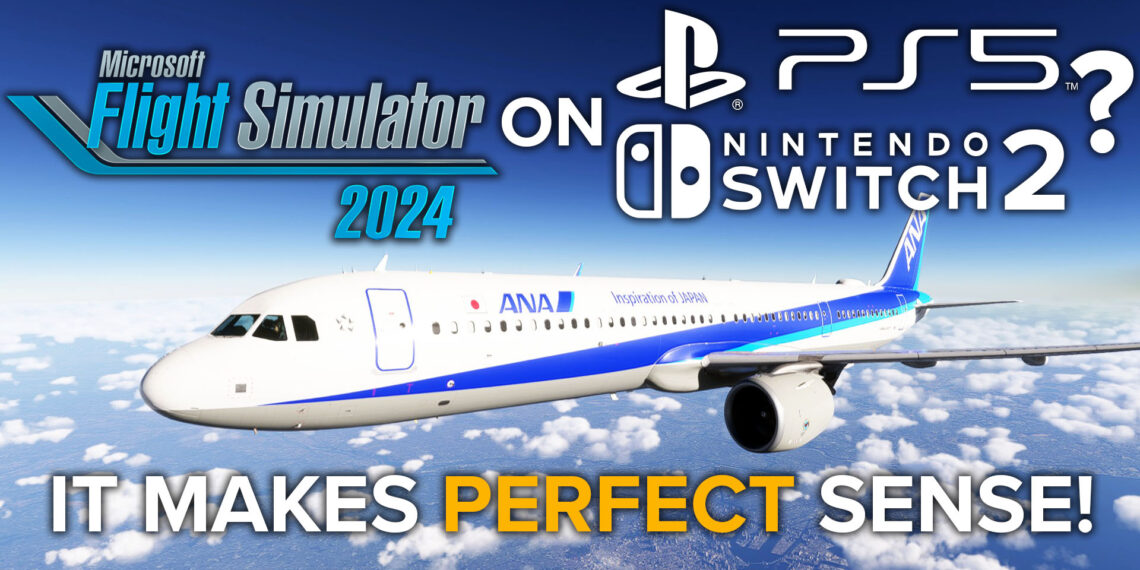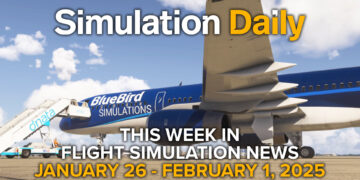Rumors have been circulating about the possibility of a port of Microsoft Flight Simulator 2024 for PS5 and Nintendo Switch 2 (or whatever Nintendo will call its upcoming new console).
The rumor was initiated by YouTuber Nate The Hate and Windows Central‘s Jez Corden mentioned that according to his own sources, it’s most likely true, but that’s not the focus of this article.
You probably know that here at Simulation Daily we aren’t particularly interested in rumors. Upcoming games sooner or later get officially announced and knowing ahead of time doesn’t really make much of a difference (besides spoiling the surprise and taking away from developers the opportunity to announce the fruit of their labor on their own terms, which isn’t particularly laudable).
We don’t know whether the rumor is true or not, and that’s only relatively relevant. The fact is that I’ve been thinking about Microsoft Flight Simulator expanding to other platforms (at least PS5) for quite some time.
All the way back on September 11, 2024, during the preview event in Arizona, I asked Head of Microsoft Flight Simulator Jorg Neumann about the possibility of a PS5 port, as you can see below. You can also watch the full interview if you’re interested.
As you can see, while Neumann steered the answer away from platforms and more toward geography, he certainly did not appear to be against the idea.
You may wonder why I asked. Of course, the question was suggested by the fact that Microsoft had recently started to announce ports of its games to both PS5 and Switch, but quite simply, porting Microsoft Flight Simulator 2024 to as many platforms as possible makes perfect sense.
Not only it’d be a net positive for everyone involved, but MSFS 2024 is likely the game in Microsoft’s first-party lineup which makes the most sense as a multiplatform release across all viable platforms.
Not only, as Neumann said, “aviation is a dream shared by anyone, anywhere, regardless of borders or age,” but Microsoft Flight Simulator 2024 and its ecosystem can objectively benefit from a wider audience more than any game on Microsoft’s roster.
MSFS 2024, like its predecessor Microsoft Flight Simulator, isn’t just a game, but it’s a full-fledged platform in its own right. While the simulator offers a massive (and unprecedented in the genre) quantity and variety of content out of the box, it sits on an extremely active secondary market of content created by third parties.
It’s a similar case to Minecraft, another game owned by Microsoft available on basically every platform, but its secondary marketplace is going to be, much more active.
Hundreds of developers including medium and small-sized companies on top of many individuals offer add-ons for Microsoft Flight Simulator and have started offering them for Microsoft Flight Simulator 2024 as well, even if the official marketplace has not opened yet.
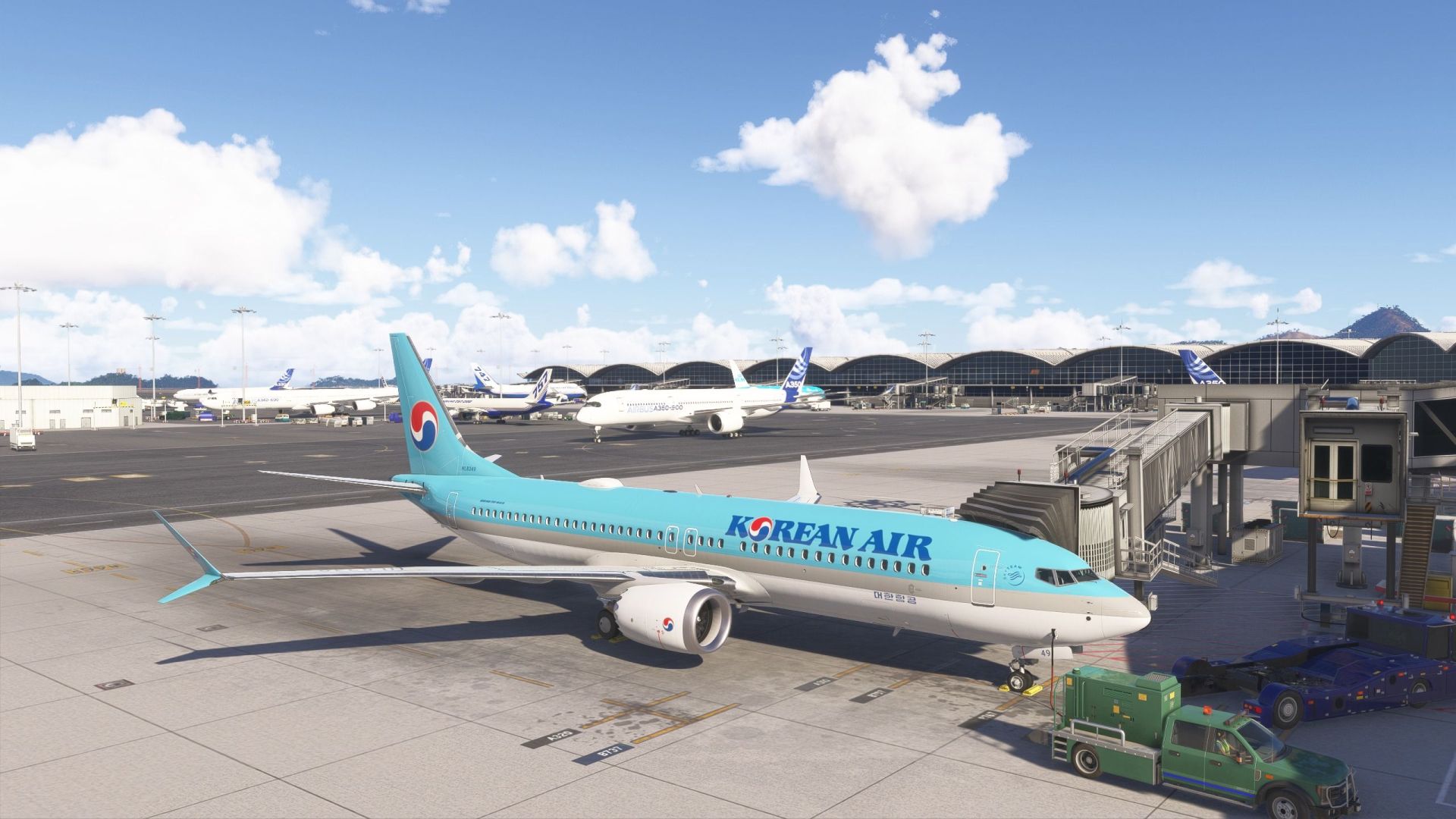
Completely new add-ons and ports from the original Microsoft Flight Simulator are released basically every day, and when the official marketplace opens, it’ll likely include several hundreds if not thousands of products out of the box. The original MSFS marketplace has over 3,000 add-on products, which is more than any other game that I know of.
Of course, Microsoft does not host these third-party add-ons for free. They receive a percentage of each sale as a royalty, which means that this whole business doesn’t just allow hundreds of developers to make a steady revenue, but it’s also extremely profitable for Microsoft Itself, which enjoys proceeds from hundreds of DLC without needing to actually develop them.
Currently, this is happening only on PC (including both Steam and the Windows store) and Xbox Series X|S. Add to that all the potential customers on PS5 and on the successor of the Nintendo Switch, and the addressable market increases massively.
This means that Microsoft stands to gain a lot more potential revenue and the same goes for the many third-party developers creating content for the simulator. It’s a win-win situation and it goes much beyond the simple sale of more copies of a game or a handful of DLC.
Of course, this doesn’t come entirely for free, as ports need to be developed, but I’m very positive the potential gain is decidedly worth the effort. The port wouldn’t even necessarily need to be developed by Asobo, as there are many companies specializing in this kind of business that could be hired for the purpose.
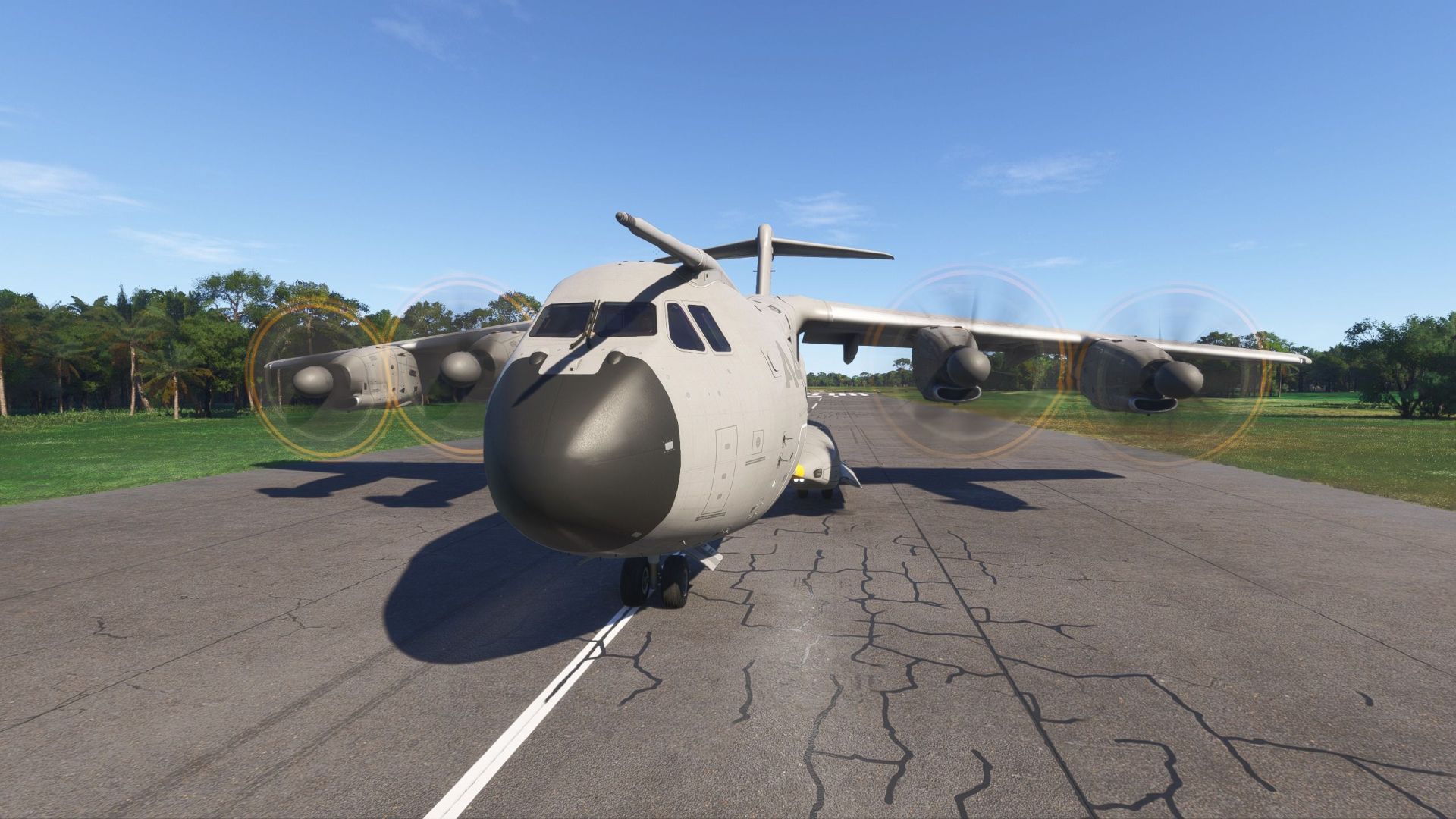
There’s no doubt that the PS5 can handle Microsoft Flight Simulator 2024 since it runs on Xbox Series S. The successor of the Switch is perhaps a bit more iffy, considering that we don’t know its specs just yet, and Nintendo isn’t exactly famous for releasing powerful consoles.
That being said, as long as the new console has as much or more RAM as the Xbox Series S (the faster the better), it should be fine. Microsoft Flight Simulator 2024 can run on some pretty underpowered PCs and the biggest issue inherited from its predecessor has always been having enough memory to load all the avionics and scenery.
After all, the original Switch has seen some “miracle ports” like The Witcher 3: Wild Hunt and Doom Eternal, so where there is a will, there is a way.
The idea of playing a flight simulator on a portable console may sound a bit strange, but I do enjoy MSFS on my Asus Rog Ally, so there’s no reason why it can’t be enjoyable on the go on the next Switch console. On top of that, Microsoft Flight Simulator 2024 has plenty of “virtual tourism” aspects that can be enjoyed even by the more casual and younger user base you’ll find on a Nintendo console.
Now, let’s get to the elephant in the room. I fully expect to see many PC-based flight simulation enthusiasts bemoan the fact that by expanding to two more consoles, Microsoft would be catering more to “gamers” and less to “simmers.”
As a flight simulation enthusiast (since the time of Flight Simulation by Psion, vintage 1982) who has not purchased a single current-generation console (All the games I care about are on PC anyway), I couldn’t disagree more.
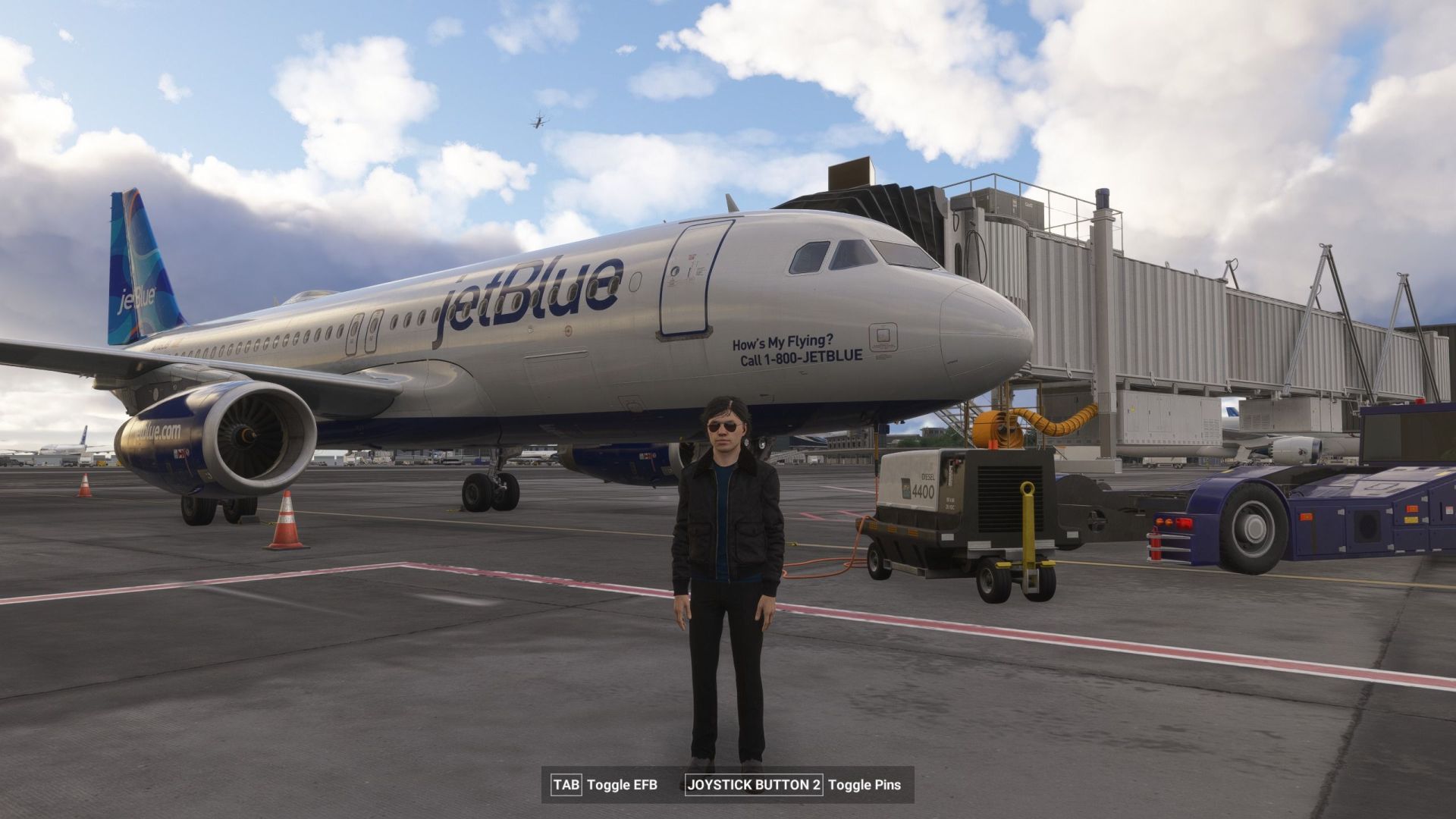
Without getting into the usual dead-horse discussion about the fact (yes, it’s a fact) that flight simulators are a genre of video games, what are “gamers” if not potential future simmers?
The flight simulation hobby has been stagnating and has been in dire need of new blood since Microsoft dropped the genre after Flight Simulator X. Microsoft Flight Simulator 2020 has contributed to introducing many novices to the hobby, but this isn’t a one-and-done process. It needs to continue at a consistent rate for it to be effective.
During the years between Microsoft Flight Simulator X and Microsoft Flight Simulator 2020 other flight simulation developers have not been able or willing to reach out to the new generations, creating an insular community that is way too accustomed to accepting a completely static status quo to the point of being hostile to change.
Our hobby needs and will continue to need as many newcomers with fresh eyes unclouded by elitism and insularism as possible to ensure its very survival in the long run, as our generation is not immortal.
As someone who often goes to schools to evangelize flight simulators, it’s very obvious to me that the best pool of potential dedicated flight simulation enthusiasts is found among gamers, so catering to gamers absolutely benefits the dedicated flight simulation community.
On top of that, additional revenue can be reinvested in the simulator, which objectively benefits us all. A healthy, successful simulator with as many users as it can get across as many platforms as possible means a simulator in which Microsoft will continue to invest and that will continue to improve over time.
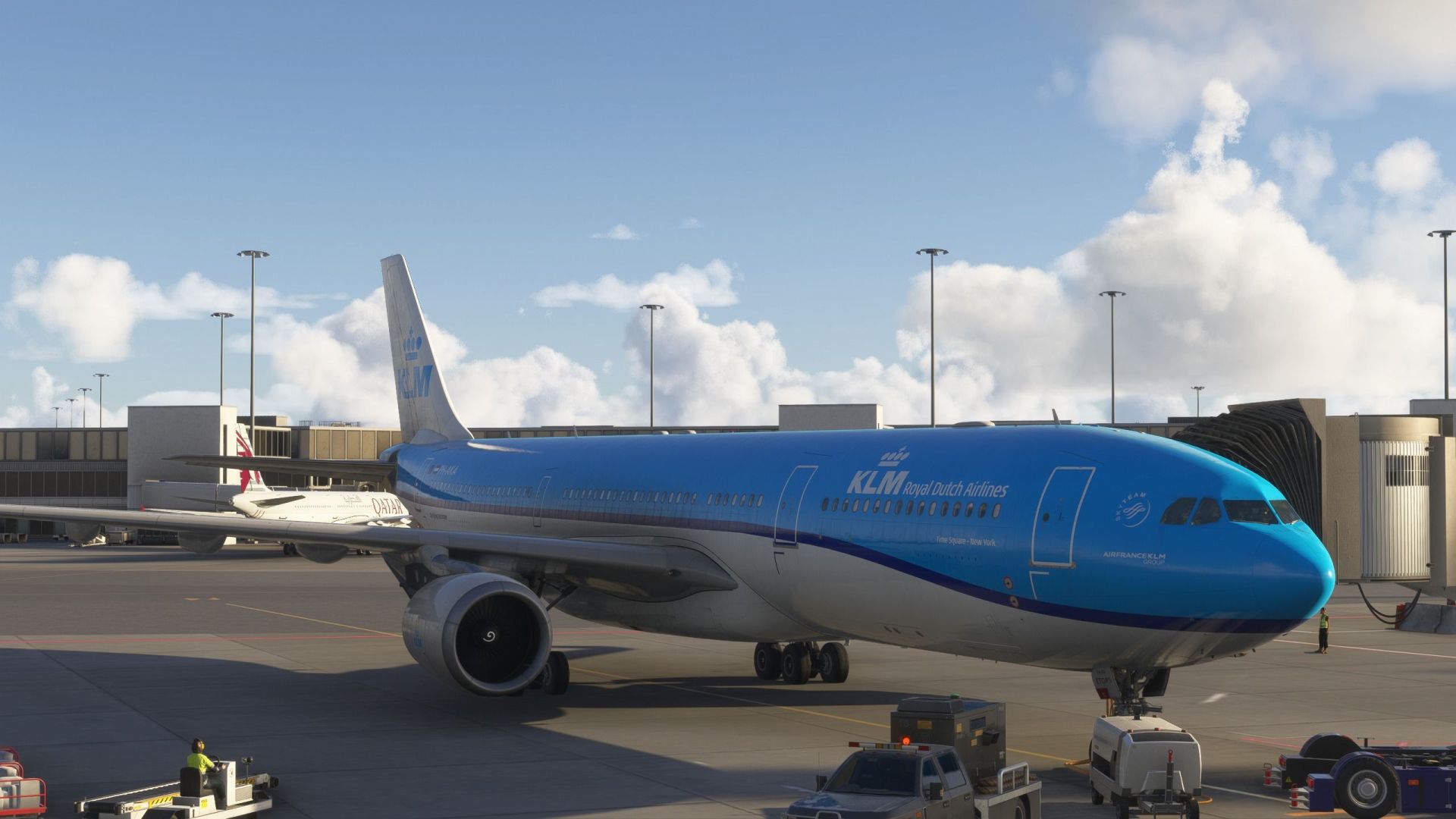
On top of that, flight simulators on consoles are absolutely a factor in encouraging many of their users to move to PC. I know plenty of Microsoft Flight Simulator users who started on Xbox Series X or even Series S, and after falling in love with the sim and seeing how awesome it can be on PC, they purchased a gaming PC and made the jump.
I’m fairly sure Microsoft itself would be very happy to see PS5 and Nintendo users become PC gamers, as every single one of them would become a Windows user as well.
Ultimately, porting Microsoft Flight Simulator 2024 to PS5 and to the next Nintendo consoles makes perfect sense from every point of view. Basically, everyone wins and Microsoft itself has plenty to gain from the endeavor.
If the rumors are true, that’s great. If they aren’t, Microsoft should definitely get on it as soon as possible.
Microsoft Flight Simulator 2024 is currently available for PC and Xbox Series X|S. if you want to see the visual difference against Microsoft Flight Simulator 2020, you can enjoy our video and screenshot comparison.
You can also check out our in-depth analysis of how much data the simulator downloads from the cloud, clearing the air from some widespread misinformation that made the rounds over the past few weeks.
You can also watch our latest interview with Jorg Neumann, the previous interview with Neumann himself and Sebastian Wloch, another with Asobo CCO David Dedeine, and one featuring Chris Burnett of Working Title and Brandon Yaeger of Got Friends about their work on MSFS 2024.

